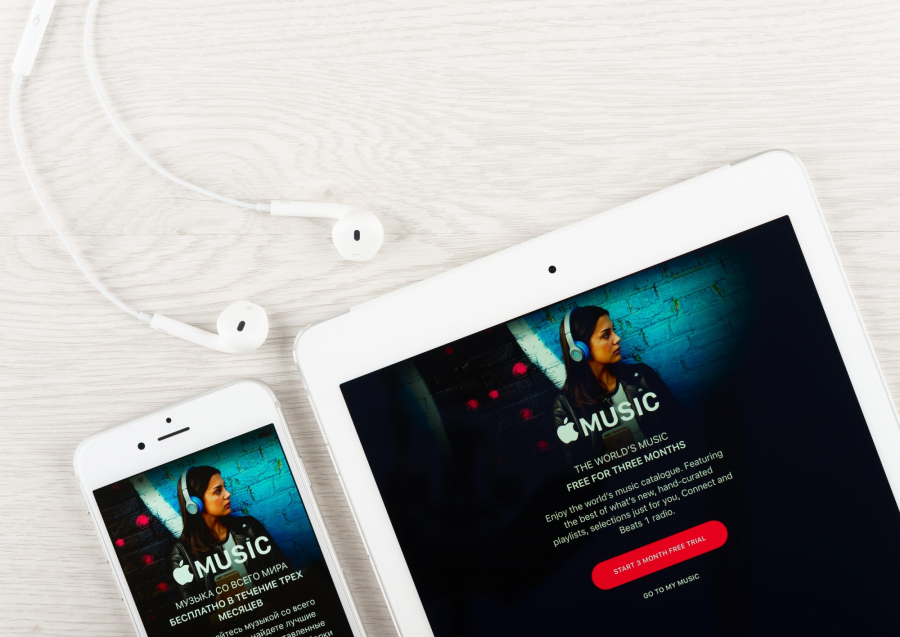The month of August is proving to be one full of pleasant surprises, the most recent being Apple's
Wednesday morning, Apple's shares were up by an encouraging 6%, proving to Wall Street analysts that their fears about iPhone delays were the results of being overcautious. What's more is that the sale of Apple's iconic MacBooks and digital services seemed to counteract waning iPhone sales to the extent that the tech behemoth even predicts "$49 billion to $53 billion for its fiscal fourth quarter" in revenue.

Wall Street is now convinced that Apple's "super-cycle" is not going to come to an end or come crashing down, but rather maintain its momentum at least until the final quarter. "The outlook implies that fears of an iPhone X launch delay, and/or limited availability of the device, may have been overblown," Piper Jaffray analyst Michael Olson wrote Wednesday in a note to clients. "We recommend owning AAPL due to growing anticipation around iPhone X and a favorable trajectory for services revenue."
According to Apple's chief financial officer, Luca Maestri, the corporation actually saw augmented sales and revenue in all its product lines, including the once-struggling iPad. Sales for the iPhone have grown by 2% worldwide to reach an astounding 41 million units. The biggest winner seemed to be digital services, namely app sales and Apple Music, which skyrocketed by 22%, outshining even Apple's own projections.
Apple's success has been so extraordinary, that it has even helped the Dow break above 22,000 for the first time in history. "We've come a long way in a very short period of time," said Brent Schutte, chief investment strategist at Northwestern Mutual Wealth Management. "I think people are now focusing on the macro news, especially on the jobs report." Other significant contributors to the Dow's momentous increase have been Boeing

A lot of doubt had been cast over Apple before not only due to the iPhone, but also due to its precarious position in China, where revenue has fallen by 10%. Apple mainly does most of its manufacturing in China, however Trump is exerting pressure on corporations to augment local manufacturing jobs.
Perhaps this is also why some Wall Street figures are still iffy about Apple's future success. For instance, KeyBanc analysts led by Andy Hargreaves believe "pent-up demand does not appear to be building." They put out a note that read: "We believe the current valuation balances the potential for upside in the coming cycle, with the likelihood for a longer-term slowdown in growth related to high-end smartphone market saturation and diminished value in incremental innovation."
This particular stance is in complete contrast to Apple CEO Tim Cook's belief that a temporary pause will generate sufficient future buzz to boost sales. Yet, if the past is to be followed, then investors should know that Apple is a company that's in it for the long run. It is rapidly approaching a $1 trillion market cap, which will undoubtedly be aided by scores of consumers who have been eagerly waiting to snatch up their new iPhones all whilst convincing scores more to do the same.
- https://www.cnbc.com/2017/08/02/apple-surges-6-percent-after-forecast-shows-wall-street-fears-over-iphone-delay-were-overblown.html
- https://www.cnbc.com/2017/08/01/apple-tech-stocks-soar-after-hours-set-to-lead-dow-to-22000-record-wednesday.html
- http://business.financialpost.com/investing/will-new-iphones-make-apple-inc-the-first-1-trillion-company/wcm/1ce3b81a-0fb9-4e90-8a36-14d470422f54
- https://www.nytimes.com/2017/08/01/technology/apple-iphone-earnings.html
- http://www.marketwatch.com/story/apples-earnings-have-wall-street-learning-to-stop-worrying-and-love-the-super-cycle-2017-08-02













